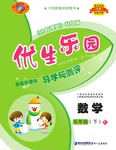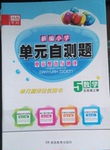题目内容
【题目】阅读填词。根据其内容图表中的空格里填入一个恰当的单词。
New Energy in Twenty-first Century
Energy from the wind
Wind is a kind of clean energy, and there is lots of it. But if there’s no wind, there is no wind energy.
Energy from the water.
When water movers from a high place to a lower place, it can make electricity without pollution. However, people have to build dams(水坝), to use this energy, and building dams is very expensive.
Energy from the earth.
There is heat in the rocks under the earth. Scientists use the heat to make geothermal(地热的)energy. This kind of energy is cheap, but it is is only possible in a few places in the world.
Energy from the sun.
Solar panels on the roofs of houses can turn energy from the sun into electricity. Solar power is clean and plentiful. But when the weather is bad, it doesn’t work.
New 【1】 in 21C | Advantage | Disadvantages (缺点) |
Wind energy | A kind of【2】 energy | If there is no【3】 ,there is no wind energy. |
【3】 energy | Water movers can make electricity without【4】 | Building dams is not【5】 |
Geothermal(地热的)energy | The【6】 in the rocks under the earth can make energy. | Only【7】 in a few places |
Solar energy | 【8】 | When the 【9】is bad, it doesn’t work. |
【答案】【1】energy
【2】clean
【3】wind
【4】water
【5】pollution
【6】cheap
【7】heat
【8】possible
【9】plentiful
【10】weather
【解析】试题解析:
这是一篇科普知识类短文阅读。短文讲的是在二十一世纪的时期,我们可以利用新的能源,例如:风能、水的能源、地热和太阳能。每一个能源都有它的优点和缺点。
【1】试题分析:New Energy in Twenty-first Century21世纪的新能源。根据句意可知,此处填energy。
【2】试题分析:Wind is a kind of clean energy风是一种干净的能源。根据句意可知,此处填clean。
【3】试题分析:if there’s no wind, there is no wind energy.如果没有风,就没有风能源。根据句意可知 ,此处填wind。
【4】试题分析:Energy from the water.来自水的能源。根据句意可知,此处填water。
【5】试题分析:it can make electricity without pollution.它可以生产出没有污染的电力。根据句意可知 ,此处填pollution。
【6】试题分析:building dams is very expensive.修建水坝是很昂贵的。根据句意可知 ,expensive="not" cheap,故填cheap。
【7】试题分析:There is heat in the rocks under the earth. Scientists use the heat to make geothermal(地热的)energy.地球下的岩石里有热量,科学家用这种热量来制造地下热能。根据句意可知,此处填heat。
【8】试题分析:it is is only possible in a few places in the world在世界上只有几个地方是可能的。根据句意可知,此处填possible。
【9】试题分析:Solar power is clean and plentiful.太阳能是干净的和丰富的。根据句意可知,此处填plentiful
【10】试题分析:But when the weather is bad, it doesn’t work但是当天气糟糕的时候,它是不会工作的。根据句意可知,此处填weather。

 优生乐园系列答案
优生乐园系列答案 新编小学单元自测题系列答案
新编小学单元自测题系列答案